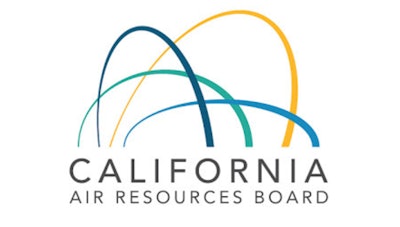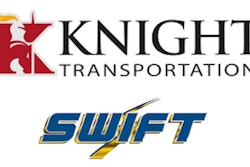
An agreement between California air quality regulators and major truck manufacturers to develop zero-emissions vehicles is drawing criticism from leading trucking industry organizations.
The California Air Resources Board Thursday, July 6, announced a Clean Truck Partnership with the nation’s leading truck manufacturers and the Truck and Engine Manufacturers Association that the board said advances the development of zero-emission vehicles for the commercial trucking industry. The agreement includes flexibility for manufacturers to meet emissions requirements while still reaching the state’s climate and emission reduction goals.
The deal has drawn fire from the Truckload Carriers Association and the American Trucking Associations, two of the industry's major advocacy organizations.
The Clean Truck Partnership includes Cummins, Inc., Daimler Truck North America, Ford Motor Company, General Motors Company, Hino Motors Limited, Inc., Isuzu Technical Center of America, Inc., Navistar, Inc., PACCAR Inc., Stellantis N.V., Truck and Engine Manufacturers Association, and Volvo Group North America.
Their agreement with CARB marks a commitment from the companies to meet California’s vehicle standards that will require the sale and adoption of zero-emissions technology in the state, regardless of whether any other entity challenges California’s authority to set more stringent emissions standards under the federal Clean Air Act. In turn, CARB has agreed to work collaboratively with manufacturers to provide reasonable lead time to meet CARB’s requirements and before imposing new regulations and to support the development of necessary ZEV infrastructure.
“The unprecedented collaboration between California regulators and truck manufacturers marks a new era in our zero-emission future, where we work together to address the needs of both the trucking industry and the Californians who deserve to breathe clean air,” said CARB Chair Liane Randolph. “This agreement makes it clear that we have shared goals to tackle pollution and climate change and to ensure the success of the truck owners and operators who provide critical services to California’s economy.”
However, TCA and ATA have differing opinions on the agreement. Both issued statements on the topic. They include:
Jim Ward, president of Truckload Carriers Association
"Unfortunately, with this agreement, the motor carrier and its drivers will experience the pain points of this ill-suited compromise. As we have continued to point out, the issues of reliability, affordability, and achievability of these regulations must remain at the forefront of these conversations. The trucking industry continues to be in the crosshairs of communicating all of these to a customer base that won’t entirely understand the ramifications of such rhetoric-filled rules. Concerns of equipment reliability, infrastructure uncertainty, and high cost of these trucks will reveal themselves as we move closer to these deadlines and our government officials will once again be forced to explain the shortcomings of the nation’s supply chain when now is the actual time to resolve these matters to develop environmentally friendly trucks that would continue to deliver this nation."
Chris Spear, president and CEO of the American Trucking Associations
“We’ve long advocated for a single, national standard that respects and preserves interstate commerce. However, the trucking industry shouldn’t be strong-armed by the government into an agreement with such terms. Our association represents motor carrier members – the paying customers who will inherit the costs of this agreement – and we will not roll over nor relinquish our right to litigate with any party when our interests are threatened. It is clear that America has lost its way when the government bullies the private sector to succumb to unachievable timelines, targets, and technologies.”
Jim Mullen, executive director of the Clean Freight Coalition
“The CFC and its members are committed to the sustainable and affordable transition to zero-emission trucks. However, the unachievable standards and timelines set forth by California regulators jeopardize the entire supply chain and risk truck dealers having limited compliant products to sell and fleets holding onto their older trucks longer. The CFC questions the benefits of this agreement. Policymakers could make an immediate impact on truck emissions by providing incentives for motor carriers to refresh their fleets with newer, more environmentally friendly trucks. For instance, eliminating the Federal Excise Tax on heavy trucks would provide immediate benefit by reducing emissions while improving roadway safety with trucks equipped with the latest technologies. A patchwork of state regulations disrupts the trucking industry and our nation’s supply chain. The CFC will continue to advocate for a sustainable and affordable transition to a zero-emission future which protects the supply chain and does not pass the financial burden onto the hundreds of millions of American households and business consumers who depend on goods shipped by trucks.”
The Clean Truck Partnership comes as California prepares for implementation of its landmark rules that put in place a phased-in transition toward 100% sale and use of zero-emissions technology for medium- and heavy-duty vehicles under CARB’s Advanced Clean Trucks and Advanced Clean Fleets rule by 2045. In March, the Biden administration approved California’s waiver under the federal Clean Air Act that allows the state to become the first in the world to require zero-emissions technology for trucks. By working together, California air quality regulators and truck manufacturers will ensure that the technology, infrastructure, and supply will be available to meet the state’s ambitious clean air goals.












